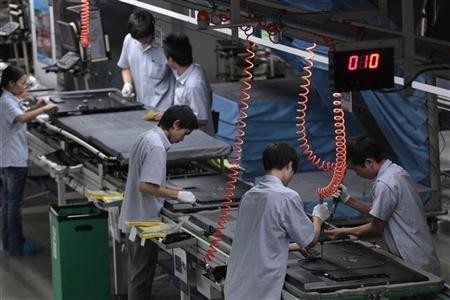The 2013 performances of China's regional economies have become a topic of discussion after the information contained within a new blue paper from the Chinese Academy of Social Sciences (CASS) was released on Monday.
The data reveal that among China's 31 provinces, regions and municipalities during the annual period, East China's Jiangsu Province, South China's Guangdong Province and North China's Beijing were the nation's top-three-placing geographical locales in terms of economic competitiveness.
In broader terms, China's eastern-region provinces received higher scores than those on the opposite side of the country during 2013. Meanwhile, the western region's gap of economic competitiveness slimmed down throughout the year when compared alongside the provinces in the central region.
Nine major evaluation indexes were used in the compilation of the blue paper's findings, and included the macroeconomy, industrial economy, sustainable growth and the environment.
In light of comments made by Beijing officials earlier in the year, the minor role of GDP as a "basic index" is significant. The contribution of the secondary, or manufacturing, industry was a major player in local economic growth for the vast majority of provincial-level governments--Beijing, Guangdong and Hainan Province were the only exceptions.
The vice president of CASS, Li Yang, was present at the launch of the blue paper and spoke about the results from within the context of President Xi Jinping''s "new normal" economic period. Li told reporters:
"As China enters a 'new normal' with the pace of economic growth, one of the future growth drivers is actually inter-provincial competition."
Li's senior colleague, Jin Bei, called upon the nation to develop "high-end and refined technologies" in the wake of the paper's results. Jin believes that, beyond investment garnering and industrial expansion, this should be a greater priority for China's economy.



























